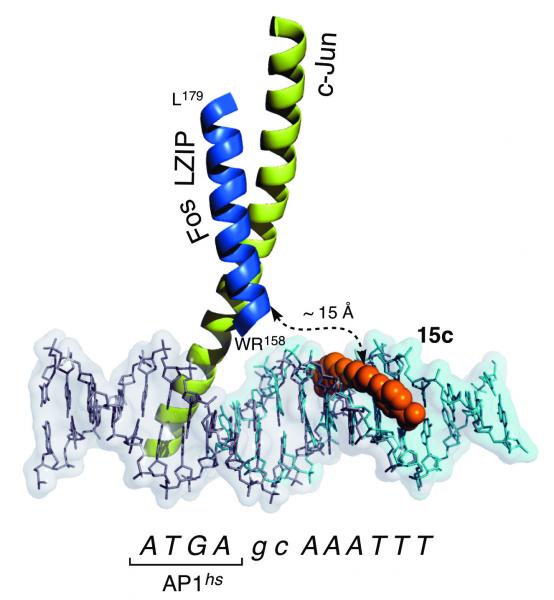 The basic goal of his work was the development of molecules able to recognize nucleic acids, especially DNA, selectively. The availability of smart molecules capable of affecting processes, such as the expression of specific genes, in a predictable and programmable manner, might lead to a better understanding of molecular details of this process as well as provide the basis for the discovery of novel medicines. Some of the developed methods were published in prestigious journals as Angewandte Chemie Int. Ed., ACS Chemical Biology and Chemical Communications.
The basic goal of his work was the development of molecules able to recognize nucleic acids, especially DNA, selectively. The availability of smart molecules capable of affecting processes, such as the expression of specific genes, in a predictable and programmable manner, might lead to a better understanding of molecular details of this process as well as provide the basis for the discovery of novel medicines. Some of the developed methods were published in prestigious journals as Angewandte Chemie Int. Ed., ACS Chemical Biology and Chemical Communications.
The research group MetBioCat has a specific research program in the area of Chemical biology, focused on developing new chemical tools to interfere and/or sense biological processes. Specifically, parts of their efforts are directed to the construction of molecular agents capable of acting in biomolecular recognition processes or as biomolecular sensors. Some of these designs can have a large impact in the fields of molecular and cell biology or biomedicine.
More information: http://www.usc.es/ciqus/en/groups/metal-bio-catalysis


